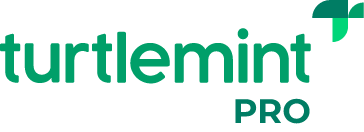
The last quarter of the financial year proves quite productive for insurance distributors. Everyone wants to save tax. That is why your clients show more inclination towards products which can save their tax liability. While life and health insurance plans are tax-saving, there are other avenues too. The Income Tax Act, 1961, lists various investment choices which let a tax-payer save income tax. When selling insurance, your clients might want to invest in other popular channels. You, as an informed advisor, should educate your client about the tax efficiency of the chosen products. But for that education, you should know the tax implications yourself. So, here are some popular investment avenues and their tax efficiency decoded –
Term deposits
Many individuals favour fixed deposits or post-office time deposits because of their guaranteed returns. Though returns are guaranteed, these deposits are not very tax efficient. Investment made in any fixed deposit or post-office time deposit, except 5-year deposits, is taxable. In case of 5-year deposits, the investments can be claimed as tax deduction up to Rs.1.5 lakhs under Section 80C. When it comes to interest, any interest earned from a fixed deposit or post-office time deposit is always taxed. So, though your client can avail 80C benefit when investing in 5-year deposits, the interest earned is taxable.
Life insurance
Premiums paid for a life insurance policy are exempted from tax under Section 80C. A maximum exemption of Rs.1.5 lakhs is available. For pension plans, Section 80CCC is applicable and the combined limit of Section 80C and 80CCC is Rs.1.5 lakhs. Even the maturity and death benefits received are tax-free under Section 10(10D). There is no upper limit on exemption of benefits. For pension plans, the commuted part of the corpus (1/3rd part which is withdrawn) is tax-free under Section 10 (10A). However, the pension payments received are taxable.
Health insurance
Health insurance plans also allow deductions on premiums paid. Premiums of up to Rs.25, 000 can be claimed as deduction under Section 80D if the plan covers self, spouse and children. In case of senior citizens the exemption limit increases to Rs.30, 000. Furthermore, if parents are covered under a separate health insurnace plan, an additional exemption of Rs.25, 000 is allowed which increases to Rs.30, 000 if parents are senior citizens. So, your client can avail a maximum exemption of Rs.60, 000 for two policies — one for himself and his family where he is a senior citizen and another for his senior citizen parents.
Mutual Funds
Mutual funds are another favourite with most investors with their promise of attractive returns. When it comes to tax efficiency, different mutual funds have different tax implications. Let’s understand each one in details –
-Equity oriented mutual funds — if the mutual fund portfolio has at least 65% exposure in equity, it is called an equity-oriented fund. The investment made cannot be claimed as deduction. If, however, the fund is held for at least 12 months, the returns earned are called long-term capital gains and are free from tax.
-Debt-oriented mutual funds — funds having at least 65% debt investments are termed as debt mutual funds. In these funds too, the investment is taxable in the client’s hands. If the fund is held for 3 years, the returns qualify for long term capital gains. In this instance, 20% tax is payable on the returns earned along with the benefit of indexation. If, however, the fund is redeemed within 3 years, it will be a short term capital gain. The return would be clubbed with income and charged at the client’s tax slab.
-ELSS schemes — though ELSS schemes are equity-oriented mutual funds, their tax implication is different. Investments made under the scheme, returns earned and the redemption proceeds are all tax-free. Thus ELSS schemes are also called EEE schemes (Exempt-Exempt-Exempt) since they qualify for tax exemption at all three stages.
PPF
Public Provident Fund is preferred by clients looking for long-term savings with fixed returns. This is also an EEE instrument wherein the investments returns and the redemption value are all tax-free. However, PPF schemes have a lock-in period of 15 years after which redemption is allowed and one can make only twelve contributions to the scheme in a financial year.
EPF and VPF
Employees Provident Fund (EPF) and Voluntary Provident Fund (VPF) also give you tax reliefs. In case of EPF, a part of salary contributed towards the scheme is allowed as deduction. However, the interest earned is taxable if it exceeds 9.5%. If the employer also contributes towards EPF, the contribution is allowed as deduction if it is above 12%. For higher amounts, the excess is taxed in the employee’s hands.
VPF can be chosen voluntarily. VPF contributions are also tax-free under Section 80C. Moreover, the interest earned is also tax-free if it is below 9.5%.
Equity shares
For aggressive investors who like to take risks, the share market holds great attraction. Trading in equity shares is another investment avenue chosen by many. In terms of taxation, selling equity shares after 12 months saves tax as the returns become long-term capital gains.
Fixed income instruments
National Saving Certificates (NSC), Kisan Vikas Patra (KVP), Sukanya Samriddhi Yojana (SSY) and Senior Citizen Saving Schemes (SCSS) are also popular fixed income instruments which let you claim deductions under Section 80C on the investment made. While SSY is EEE scheme where the interest and maturity value are also tax-free tax free, NSC, KVP and SCSS give taxable returns.
National Pension Scheme (NPS)
NPS has become popular as it allows an additional Rs.50, 000 deduction under Section 80CCD besides Rs.1.5 lakh deduction allowed under Section 80C. While the investments are tax-free up to Rs.50, 000, the scheme pays pensions which are fully taxable in the investor’s hands.
NABARD Bonds
Section 80C also allows deductions for investments made in NABARD bonds. Investments up to Rs.1.5 lakhs is exempted from tax. Even the interest earned from these bonds is tax-free.
Your clients are bound to have their investment preferences. It is your duty to educate them about their preference’s tax efficiency. While some investments give tax exemptions on the investment, interest and maturity proceeds, some don’t. Life insurance also gives EEE tax benefits while health insurance let’s your clients avail additional tax deductions under Section 80D. Tell your clients about the tax implications of different avenues so that you can be a financial advisor with a holistic view of all investment instruments and not only an insurance agent.
Read more to know different tax benefits








